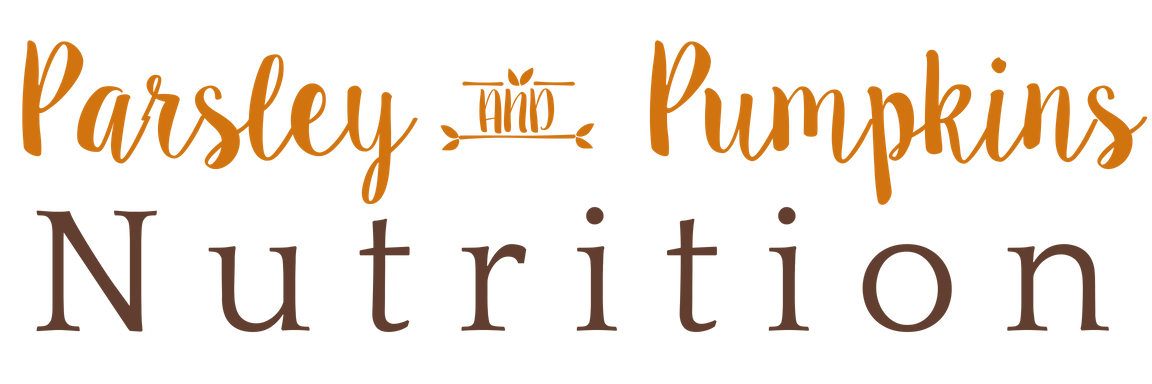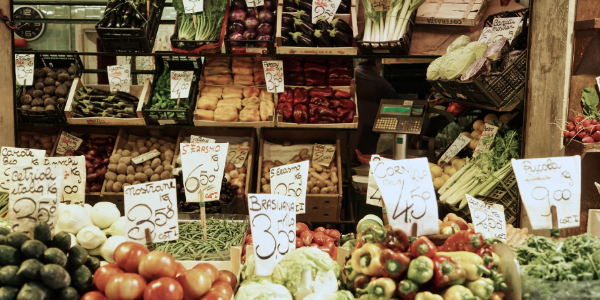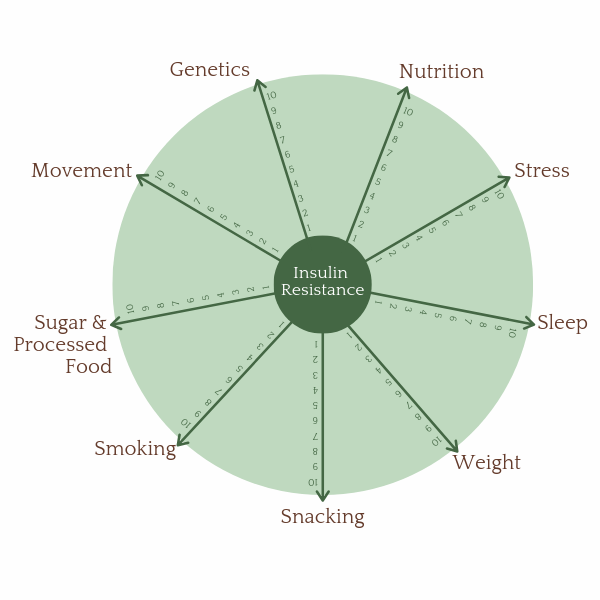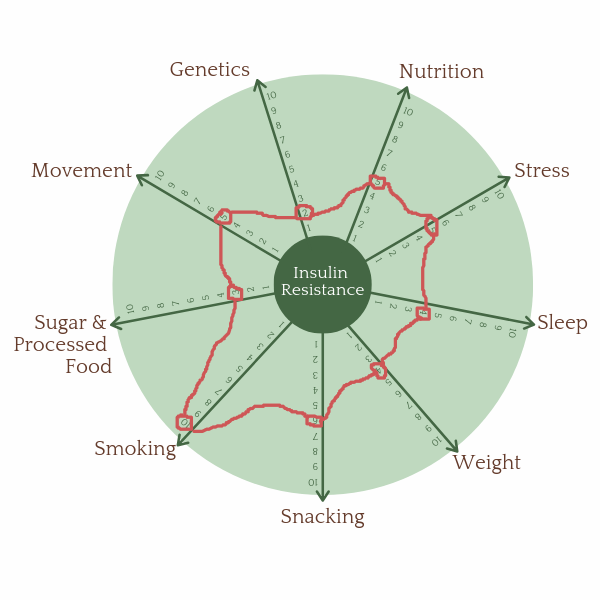How Insulin Resistance Drives PCOS
PCOS is a complex condition and many factors impacted the likelihood of you having this condition. There are many different causes of PCOS which is why it is so difficult to resolve. This article will cover the most common cause of PCOS, Insulin resistance, how it drives PCOS and what to do about it!
It’s very common when you have PCOS to go years dealing with symptoms before even getting a diagnosis, and then the usual advice is to use pharmaceuticals to deal with the symptoms. I believe drugs play an important part in medicine and can be lifesaving. But when you have a condition with so many factors contributing to it, like PCOS, it makes sense to have a multi-factor approach to re-balancing your hormones.
How High Testosterone Impacts Fertility
High androgens are the hallmark of PCOS and testosterone is the most common androgen.
High testosterone can prevent your brain from recognizing and responding to other hormones correctly.
High testosterone suppresses Luteinizing Hormone, which is the catalyst that triggers ovulation.
High testosterone suppresses Follicle Stimulating Hormone decreasing the ability of your follicles to mature enough for healthy ovulation (1).
Why do women with PCOS create too much testosterone?
Thousands of studies have been conducted on PCOS.
We know clearly that insulin directly stimulates the ovaries to produce testosterone. This is true in all women. The ovaries of every woman, healthy or not, produces testosterone in response to insulin.
However, one study showed that women with PCOS can produce 4 times as much testosterone in response to the same amount of insulin as other women (2). It’s unclear what kind of genetic component women with PCOS are more prone to produce testosterone given the same stimuli. What is clear is that there are many lifestyle factors that also influence insulin resistance and all of these factors are within your control to manage.
What causes high levels of insulin in the body?
Insulin resistance.
It’s amazing that being resistant to something that create more of it - but it does! When your cells have become desensitized to insulin and are not responding correctly, your body produces even more insulin to counteract it.
It’s like when you were a kid and you’re trying to get someone’s attention but they’re not responding, and so you say their name louder and louder and louder and louder until they finally turn around and say What!?
By increasing the levels of insulin it’s like your body turning up the volume until it’s screaming at the cells and they finally listen.
Major risk factors for developing insulin resistance PCOS
If high insulin directly creates high testosterone, which has major negative consequences for your fertility and menstrual cycle, then we need to deal with the high insulin.
There are 9 significant risk factors for developing insulin resistance.
Genetics
We know genetics play a role in developing PCOS. This piece of the puzzle is not well understood and, in case, beyond our control. Genetic testing can shine light on factors influencing your health. But start with the basics. Work on improving all of the other risk factors listed below. Once you’ve done the basics you’ll be ready to move on to more detailed testing like genetics - if you’re still having unresolved issues.
Movement
Getting regular movement benefits every part of your body! Increased blood flow improves skin tone, reduces headaches, and brings oxygen to all of your organs - including the ovaries. Movement also helps circulate the lymph system which is vital part of detoxing your body. Exercise doesn’t need to be rigorous or stressful. A 30 minute walk or light yoga flow each day gives all the benefits of regular movement without adding any extra stress on the body.
Sugar/Refined carbohydrates
Sugar and refined carbohydrates go hand in hand with insulin resistance. Sugar and refined carbs are absorbed so quickly they cause a massive spike in blood sugar. The body responds with a massive spike in insulin. Removing sugar and refined carbs is step #1 in healing insulin resistance.
Smoking
Smoking is associated with an increased risk of insulin resistance and type 2 diabetes. Smoking also causes inflammation in your body and so you can become depleted in anti-oxidant nutrients very quickly.
Constant Snacking
Sugar and refined carbohydrates elevate insulin levels the most, but all foods will raise insulin. The idea of snacking in between meals is a fairly new concept. Humans traditionally ate 2-3 large meals and nothing in between. This gives the body a break from insulin in between meals.
Weight
Being overweight is associated with increased risk of insulin resistance and type 2 diabetes. However, being overweight is not the cause of insulin resistance, it’s only a risk factor. Insulin is a storage hormone - it tells the cells to store glucose and anything leftover is stored in fat cells. This means that weight gain generally follows insulin resistance.
Sleep
Lack of sleep is a major stressor on the body. 7 hours is the minimum requirement to retain full brain capacity and allow any healing to occur (3). If your body needs to heal from insulin resistance, chronic inflammation, thyroid distress, or any condition affecting your hormones, aim for 8.5 hours of sleep every night.
Stress
The body responds to stress by producing a stress hormone called cortisol. Cortisol increases your blood sugar levels. This makes sense. If the body thinks it’s under a serious stress, it will raise blood sugar levels so that you have the energy to fight or flee. The increase in blood sugar causes an increase in insulin - since this is the only mechanism the body has to get the energy into the cells. Chronic stress - even perceived stress such as worry - can raise insulin levels.
Nutrition
Nutrients are building blocks, they’re catalysts, they’re spark plugs in the body. It’s how your cells are able to function.
Chromium shown to increase insulin sensitivity
Magnesium needed for the body to use glucose instead of store it
Biotin, isn’t just great for hair and nails, it also stabilizes blood sugar and decreases insulin response
Vitamin D, which is actually a hormone, helps the body process carbohydrates correctly
Certain proteins like Asparagine increase cells sensitivity to insulin thereby reducing how much insulin the body needs to make.
Reducing your Risk Factors for Insulin Resistance
Imagine each risk factor as a section of a pie. On the cut line of the pie there is a scale of 1-10. Go through each risk factor and mark where you currently see yourself on the scale. 1 is low, not doing very well. And 10 is high, as in very healthy.
This gives you a visual of all the things that are within your control that you can work on to improve your insulin resistance and lower your testosterone and ultimately, have healthy regular periods and regain your full fertility. You’ll notice that the only category on here that is not in your control are your genetics. But that’s just one piece of the puzzle.
Conclusion
PCOS is impacted by so many things in your life and in your body. It just makes good sense to have a multi-factorial approach to managing this condition.
I know how common it is to feel like this condition is in control of your life instead of the other way round. Knowing the different causes and factors associated with PCOS, looking clearly at the high risk areas of your life, will actually put you back in control. Now you know there are so many things you can do to support your body and balance your hormones naturally.












